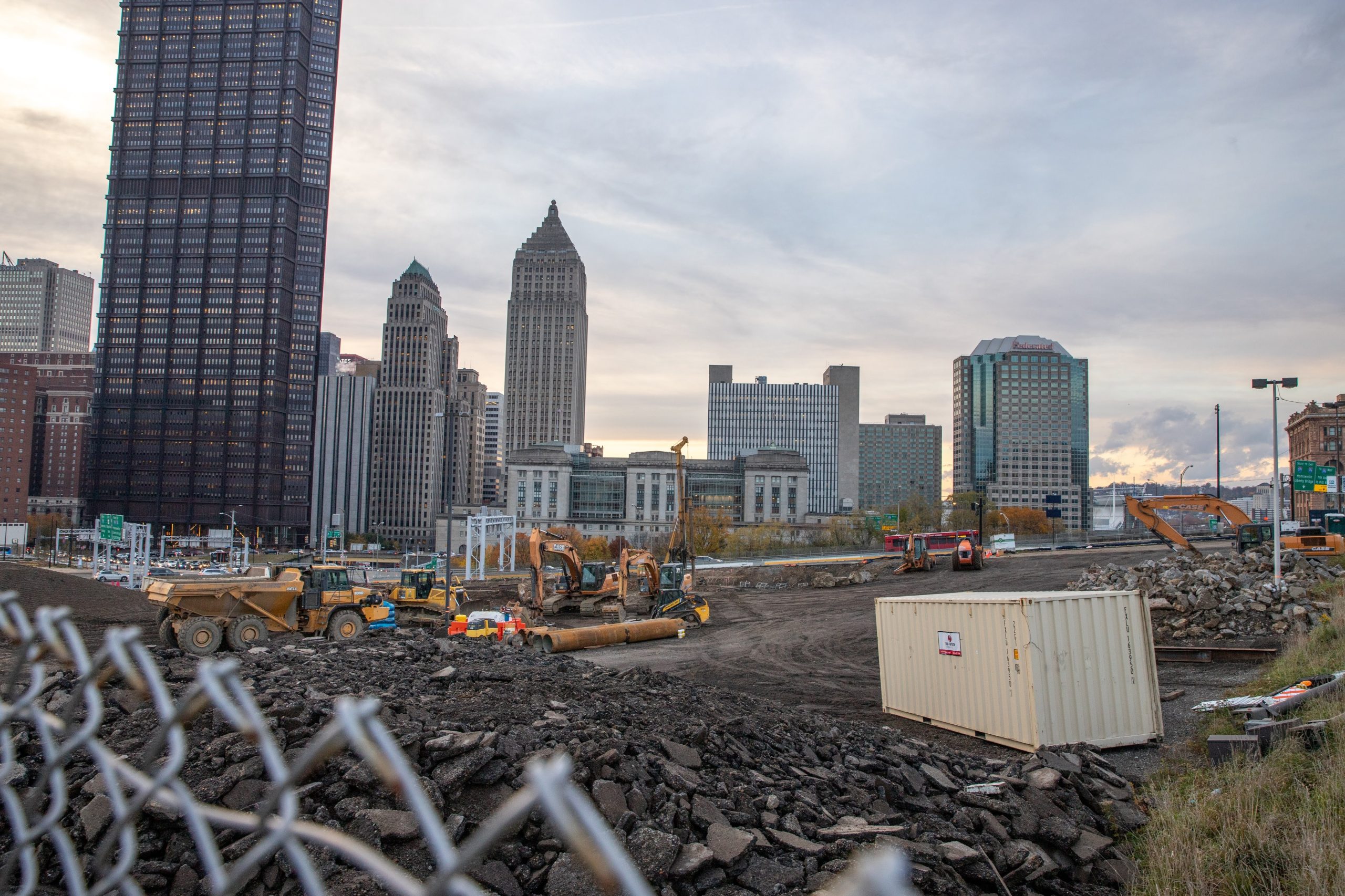As the sale of the Penguins progresses, parties interested in the redevelopment of the former Civic Arena site are seeking more assurance on the buyer’s commitments to the Hill District.
A General Management Committee of nine members [EMC], responsible for monitoring the flow of profits from the site to the rest of the neighborhood, held its first public meeting on December 10, just a day after the sale received two key approvals.
On December 9, the Sports and Exhibition Authority [SEA] the Board of Directors and the Board of Governors of the National Hockey League have both approved the sale of a controlling interest in the Penguins to Fenway Sports Group [FSG], based in Boston.
The sale has raised questions in the Hill because of the complex arrangements that govern the development effort.
The Penguins have created Pittsburgh Arena Real Estate Redevelopment LLC. PAR is party to the collaboration and community implementation plan [CCIP], also signed by the government and neighborhood leaders, which sets targets for sharing the benefits of development throughout the neighborhood. PAR has partnered with the Delaware-based Buccini / Pollin group [BPG] to redevelop the site.
The seven-year-old EMC includes representatives of the Penguins, the public sector and the neighborhood, and is not legally required to hold public meetings. PublicSource has been requesting access to one of its meetings since August 10. The panel, which meets every two weeks, now plans to hold one public body per calendar quarter.
Pittsburgh City Councilor Daniel Lavelle, co-chair of the EMC, said he had “had a very brief conversation with one of the Fenway Group partners who explained that he intended to abide by all of the commitments and all agreements that are in place.
In the virtual meeting, Marimba Milliones, President and CEO of Hill Community Development Corp. and a member of EMC, asked if anyone had any details on FSG’s commitments.
Tracey McCants Lewis, a member of the EMC and also an attorney for the Penguins, said PAR had provided “certification” to both the SEA and the city’s Urban Redevelopment Authority that the sale “would not change a thing. to the commitments made in the Lower Hill Redevelopment Option Agreement. She said the commitments include both the Penguins’ redevelopment of the old 28-acre arena site and the CCIP’s commitment to leverage the construction for the benefit of the entire hill.
Millions of people have suggested that the FSG be invited to a January meeting of the EMC. McCants Lewis said she would send out an invite but couldn’t commit to a deadline yet.
An FSG spokesperson did not immediately respond to an email from PublicSource requesting an interview.
The EMC also discussed the development team’s first payment to the Greater Hill District Neighborhood Reinvestment Fund, created to distribute the fund’s improvements across Middle Hill and Upper Hill. The development team missed its $ 7.5 million commitment to approve construction of the new First National Bank headquarters at the west end of the site by $ 313,000.
Lavelle said the shortfall was due to fees associated with the loan required to make the contribution. Chris Buccini, co-chair of BPG, told Lavelle that the shortfall would be covered when the headquarters tower receives its license to occupy the city, the city councilor told the EMC.
A URA representative told the EMC that the authority is trying to get PAR and BPG to set target dates for the redevelopment of other parts of the site, including a proposed Live Nation concert hall. The next contractual deadline is October 22, 2023, when the development team must purchase a total of 10.75 acres. He has so far bought around 3 hectares.
GPB officials said they committed $ 25 million in contracts with minority-owned businesses and $ 5.2 million with women-owned businesses, out of a total of $ 87 million in contracts awarded. However, they struggled to attract Hill residents to employment and training opportunities.
Rich Lord is PublicSource’s economic development reporter. He can be contacted at [email protected] or on Twitter @richelord.

